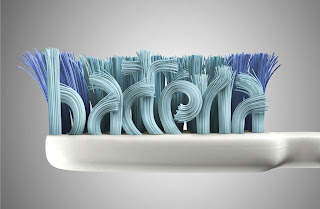Many people don't think about their toothbrush beyond using it twice a day and putting it back in it's proper place next to the sink. That's why Dr. Patel, a Corona dentist, is posting about the health of not just your mouth, but of your toothbrush as well. What you find might alarm you:
Do you know what's lurking on your toothbrush?
Your toothbrush is loaded with germs, say researchers at England's University of Manchester. They've found that one uncovered toothbrush can harbor more than 100 million bacteria, including E. coli bacteria, which can cause diarrhea, and staphylococci ("staph") bacteria that cause skin infections.
But don't panic. Your mouth wasn't exactly sterile to begin with.
Mouthful of Bacteria
"The bottom line is, there [are] hundreds of microorganisms in our mouths every day," says Gayle McCombs, RDH, MS, associate professor and director of the Dental Hygiene Research Center at Old Dominion University.
That's no big deal. Problems only start when there is an unhealthy balance of bacteria in the mouth. McCombs says.
"It's important to remember that plaque -- the stuff you're removing from your teeth -- is bacteria," says dentist Kimberly Harms, DDS, consumer advisor for the American Dental Association. "So you're putting bacteria on your toothbrush every time you brush your teeth."Could Your Toothbrush Be Making You Sick?
Corona Dentist
Probably not. Regardless of how many bacteria live in your mouth, or have gotten in there via your toothbrush, your body's natural defenses make it highly unlikely that you're going to catch an infection simply from brushing your teeth.
To continue reading this article, Dr. Patel recommends heading over to the article source at Web MD: http://www.webmd.com/oral-health/healthy-teeth-2/the-ugly-truth-about-your-toothbrush?page=1
Dental Care of Corona
Corona South Main Medical Plaza
260 E. Ontario Ave. Suite 201
Corona, CA 92879
(866) 261 6988
dentalcareofcorona@gmail.com



